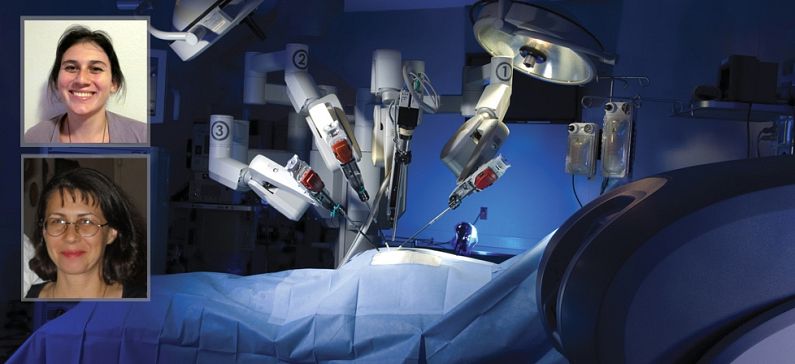
New blood test can predict recovery time from surgery
Researchers at the Stanford University School of Medicine have discovered that the activity level of a small set of immune cells during the first 24 hours after surgery provides strong clues to how quickly patients will bounce back from surgery-induced fatigue and pain, and be back on their feet again. The team is lead by microbiology and immunology professor Garry Nolan and 2 Greek researchers, Gabriela Fragiadakis and Monica Nicolau, are part of the group.
The finding, based on an in-depth analysis of blood samples drawn from middle-aged to older patients undergoing a hip-replacement procedure, is described in a study published Sept. 24 2014 in Science Translational Medicine. The study may be the most comprehensive characterization to date of the immune system’s response to trauma.
The Stanford researchers were able to make this discovery because they used a highly sensitive technology called single-cell mass cytometry. Developed in the laboratory of microbiology and immunology professor Garry Nolan, PhD, the method enables simultaneous monitoring of large numbers of biochemical features both on the surfaces of immune cells and within the cells, telling the scientists not only what kind of cells they are looking at but how active they are.
“We learned that within the first 24 hours after surgery you can find strong clues in blood that reveal what shape a particular patient is going to be in two weeks later,” said Martin Angst, MD, professor of anesthesiology, pain and perioperative medicine, who shared senior co-authorship of the study with Nolan.
The discovery could lead to the development of a personalized diagnostic blood test for predicting recovery after major surgery. (Stanford holds a provisional patent on the associated intellectual property.) Such a diagnostic could both help physicians make early decisions about which patients to put on enhanced recovery-optimizing regimens and help recovering patients know what to tell loved ones and bosses to expect. A full understanding of the molecular mechanisms identified in the study might even make it possible for clinicians to manipulate the immune system so as to foster faster recoveries.
Monica Nicolau is a Research Associate in the Department of Microbiology & Immunology in Stanford University and her research interests are Computational Biology, Bioinformatics, Systems Biology, Social Networks, Mathematics, and Biostatistics.
Gabriela Fragiadakis is currently working in Nolan’s lab and is interested in integrating high-dimensional single-cell proteomics with algorithms from machine learning to characterize human immune dynamics.







